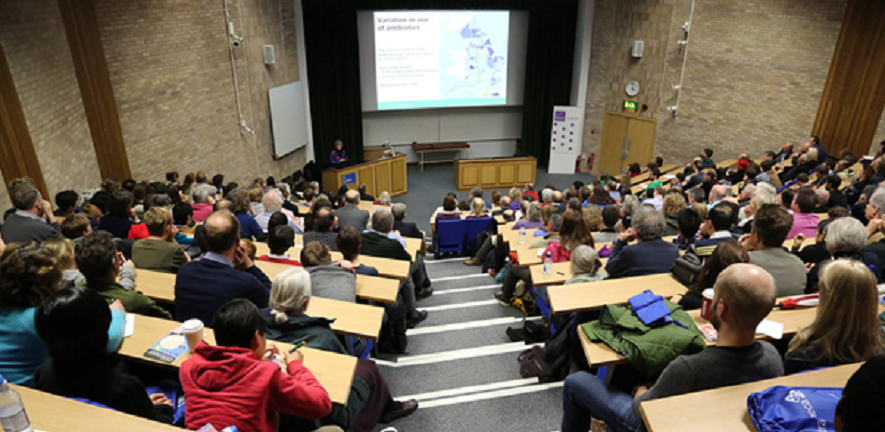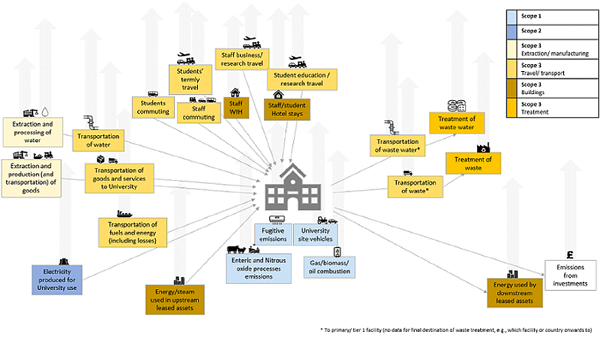
Submitted by Susannah Cook on Tue, 2023-09-26 13:45
Assessment into our scope 3 emissions has shown these emissions to be around 90% of University emissions
The University has been reporting annually on carbon emissions relating to scope 1, 2 and 3 sources for a number of years, past reports are available to read: Past annual reports | Sustainability (cam.ac.uk). We have a target to reduce scope 1 and 2 emissions by 75% by 2030 and to absolute zero by 2048 at the latest and reporting has been inclusive of all material aspects of scope 1 and 2 emissions. Scope 3 reporting has been a developing area, where there is ongoing opportunity to improve data and develop action to reduce emissions. For a reminder of what scope 1, 2 and 3 emissions are, please see our glossary of useful sustainability terms.
To support more action in reducing our scope 3 emissions, the Environmental Sustainability Team has conducted a thorough assessment called the Screening and Prioritisation Assessment. This involved:
- reflecting on all the categories of the Greenhouse Gas Protocol (GHG Protocol) (a global standardised framework for measuring and managing greenhouse gas (GHG) emissions), we have clarified which actions of the University result in scope 3 emissions
- identifying available data to determine the emissions released by University activity for each in scope category
- prioritise priority areas based on magnitude of emissions but also, considering how much influence the University has over its different scope 3 emission sources, and the importance of different emissions sources to university stakeholders
As an outcome, it is clear we have most opportunity and responsibility to act to reduce emissions relating to the top ranked areas:
- purchased goods and services including construction
- waste arisings
- downstream (non-operational estate) and upstream leased assets (energy consumption)
- travel by students at the start and end of term
- business travel by staff and students (educational/research trips) – see ‘travel’ section for the guidelines for sustainable business travel: Guidance documents | Sustainability (cam.ac.uk)
- other areas have lower priority, but will be included in future planning
Over the course of the coming year we will utilise the findings of the screening and prioritisation assessment to develop an action plan for addressing our scope 3 emissions, through target setting, supplier engagement, awareness raising and further data improvements.
Written by: Katarina McCartney, Carbon Manager

